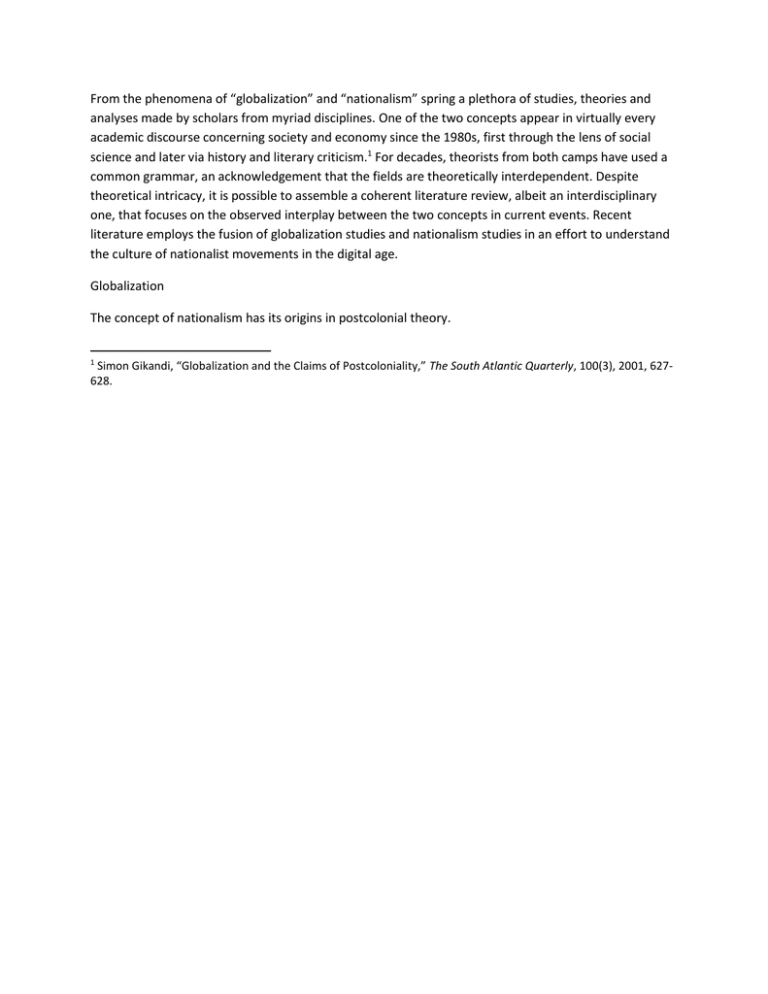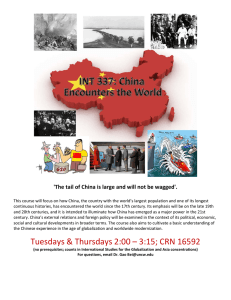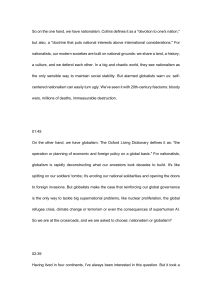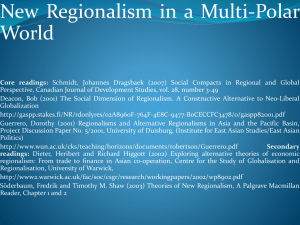LIS505_LITREVIEW.docx
advertisement

From the phenomena of “globalization” and “nationalism” spring a plethora of studies, theories and analyses made by scholars from myriad disciplines. One of the two concepts appear in virtually every academic discourse concerning society and economy since the 1980s, first through the lens of social science and later via history and literary criticism.1 For decades, theorists from both camps have used a common grammar, an acknowledgement that the fields are theoretically interdependent. Despite theoretical intricacy, it is possible to assemble a coherent literature review, albeit an interdisciplinary one, that focuses on the observed interplay between the two concepts in current events. Recent literature employs the fusion of globalization studies and nationalism studies in an effort to understand the culture of nationalist movements in the digital age. Globalization The concept of nationalism has its origins in postcolonial theory. 1 Simon Gikandi, “Globalization and the Claims of Postcoloniality,” The South Atlantic Quarterly, 100(3), 2001, 627628.





